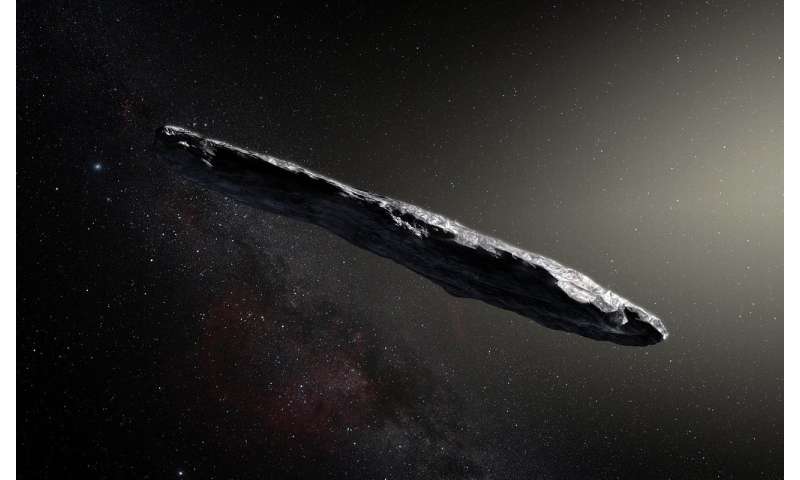Best of Last Week–The strange interstellar asteroid, high-speed quantum encryption and cinnamon combating obesity

(ScienceX)—It was a good week for technology as an international team of researchers found that energy-saving LEDs are boosting light pollution worldwide—making lights more efficient, they found, has led to the installation of more lights across the planet, making the global night sky brighter. Also, a team with members from Duke University, The Ohio State University and Oak Ridge National Laboratory found that high-speed quantum encryption may help secure the future internet—noting that such encryption techniques are drawing closer to becoming reality. And a team at Princeton University found that user website visits are being tracked—session replay scripts, they note, are becoming commonplace, allowing hackers to follow user activities more closely.
In biology news, a team with Princeton University and Uppsala University in Sweden conducting a Galapagos study found that a new species can develop in as little as two generations—a new bird there mated with a bird of another species, and in so doing, gave rise to a new species. Also, an international team of researchers found that the disease-carrying potential of flies may be greater than thought because they host more types of harmful bacteria than previously known. And a team at Columbia University Medical Center announced that they had built the world's smallest tape recorder from microbes using CRISPR.
In other news, a team working with ESO's Very Large Telescope in Chile announced that the first interstellar asteroid is like nothing seen before—it is dark, reddish and highly elongated. A team at the University of California found evidence of the sugar industry withholding evidence of sucrose's health effects nearly 50 years ago, and in so doing, putting consumer health at risk. And a team at the University of Alaska Fairbanks found that global warming didn't pause, after all—it was missing data that caused what appeared to be a slowdown in global warming from 1998 to 2012.
And finally, if you are one of many trying to lose weight, you might be interested in a study conducted by a team at the University of Michigan Life Sciences Institute. They found that cinnamon turns up the heat on fat cells and appeared to protect lab mice against obesity and hyperglycemia.
© 2017 ScienceX